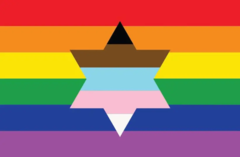
Potty Training
Children do not need to be potty trained to attend PTS Preschool.
When you feel your child is ready for potty training, we ask that you begin teaching at home during a weekend or vacation. We have found that this is the most successful method as the process begins where the child is most comfortable and without the typical distractions of school. PLEASE NOTE: We will only assist your child in potty training when you have successfully begun training at home for one week prior.
We will follow through and encourage your child while in our care. Potty training will be done in a relaxed manner with the cooperation of the family. We require that the child be at least 2 years of age and must also show signs of readiness (Please read the Potty Training Readiness Checklist below). Positive reinforcements and consistency must be continued at home.
PROPPER CLOTHING
During potty training your child needs to be dressed in “User friendly” clothing as much as possible. The best items are shorts and pants with elastic waist. Please DO NOT dress your child in the following:
- Tight clothing
- Pants with snaps & zippers
- Overalls or bib type clothing
- Belts
- One piece outfits
The clothes listed above can make it difficult for your child to reach the potty in time. Your child also needs to be able to pull his/her pants up and down independently and these items will hinder your child’s ability to do so.
REQUIRED SUPPLIES
The following items are to be left at the preschool and replaced as needed. (Soiled clothes will be returned in a plastic bag at the end of the day.)
At least two (2) changes of clothing including socks (an extra pair of shoes if available) – you will be notified when the supply is running low.
TYPICAL POTTY LEARNING SCHEDULE
- Upon arrival at the center (with a parent or caregiver)
- Before outside time
- Before snack
- Before center time
- Before lunch
- Before nap
- After nap
- During Extended Care
POTTY TRAINING READINESS CHECKLIST
Basic verbal skills. The child is able to speak in three to four word sentences
Stage 1: The child tells you he/she has a wet diaper, recognized when he/she is wet.
Stage 2: The child tells you he/she is wetting, recognizes the sensation of being wet.
Stage 3: The child tells you he/she needs to go, can control him/herself and uses the potty.
PHYSICAL & PSYCHOLOGICAL SIGNS OF READINESS
-
Stays dry for a long period of time (the child is able to “hold” his/her urine and bowel movement).
-
Can recognize when diaper is wet or soiled.
-
Has bowel movement at regular times (child chooses when to move his/her bowels)
-
Can undress and pull up his/her own pants (Important because this is the work of the child not the caregiver)
-
Initiates interest in using the potty and asks to wear underwear.
-
Wants to be independent which is very important for the learning process.
-
Child is emotionally ready and is open to learning (is child generally cooperative?)
-
Can follow three and four step instructions (this is critical for learning to urinate or move bowels, wipe hims/herelf and wash hands)
-
Can use consistent words or gestures to communicate.
-
Is able to physically get to the potty and sit on it without help.
You will often hear Parents say, “My kid will read when they read and ride a bike when they ride.” We need the same acceptance for toilet training – that it’s OK to start later, and that it’s OK to talk about the stumbling blocks along the way.





